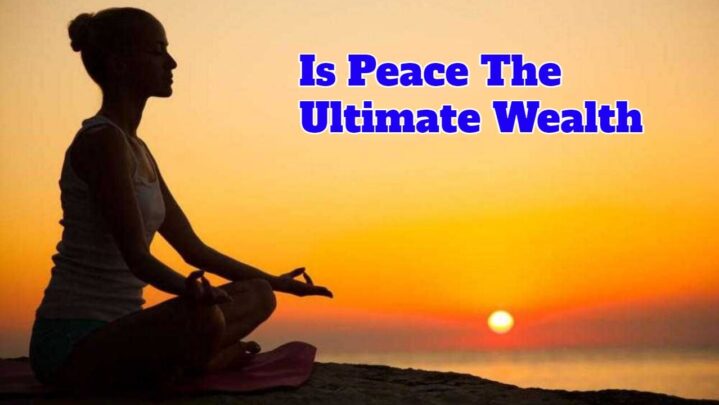It is possible to view peace as a crucial component of human pleasure and well-being. “Peace is priceless,” which means it is an irreplaceable treasure that any material standard cannot quantify, is a common phrase. However, it depends on your point of view whether or not peace is the greatest treasure.
Because it gives people and societies a sense of safety, stability, and tranquillity, peace may be considered the most significant kind of prosperity. Conversely, chaos, violence, and war result from a lack of consensus and can cause devastation, human casualties, and economic collapse. Therefore, wealth, advancement, and growth can be considered necessary conditions for peace. Furthermore, a healthy and sustainable society depends on social cohesiveness, collaboration, and respect, all fostered by ease.
To be happy or fulfilled, tranquillity is not enough. Even though a person is at peace, their life may not be fulfilling or satisfactory. Furthermore, pursuing tranquillity can occasionally result in complacency or stagnation, where individuals stop pursuing advancement or change and instead grow satisfied with how things are. Therefore, peace may not be enough to lead a whole life, even though it is required.
Ultimately, it all comes down to how one defines riches and whether peace is the ultimate form of prosperity. The value of tranquillity may not be as high as that of money, goods, or power if wealth is only viewed in real terms. Peace may be viewed as a vital element of a wealthy and entire existence, though, if wealth is viewed in terms of overall well-being and happiness.
Peace may be considered the most extraordinary prosperity, given its many advantages for people and nations. Progress, prosperity in society and the economy, and general well-being are all promoted. The potential of humanity may be realized in this stage, where people can thrive as individuals and as part of larger groups. A more promising and peaceful future may be attained by making long-term peace investments through initiatives like conflict resolution, social justice, and inclusive policies.





